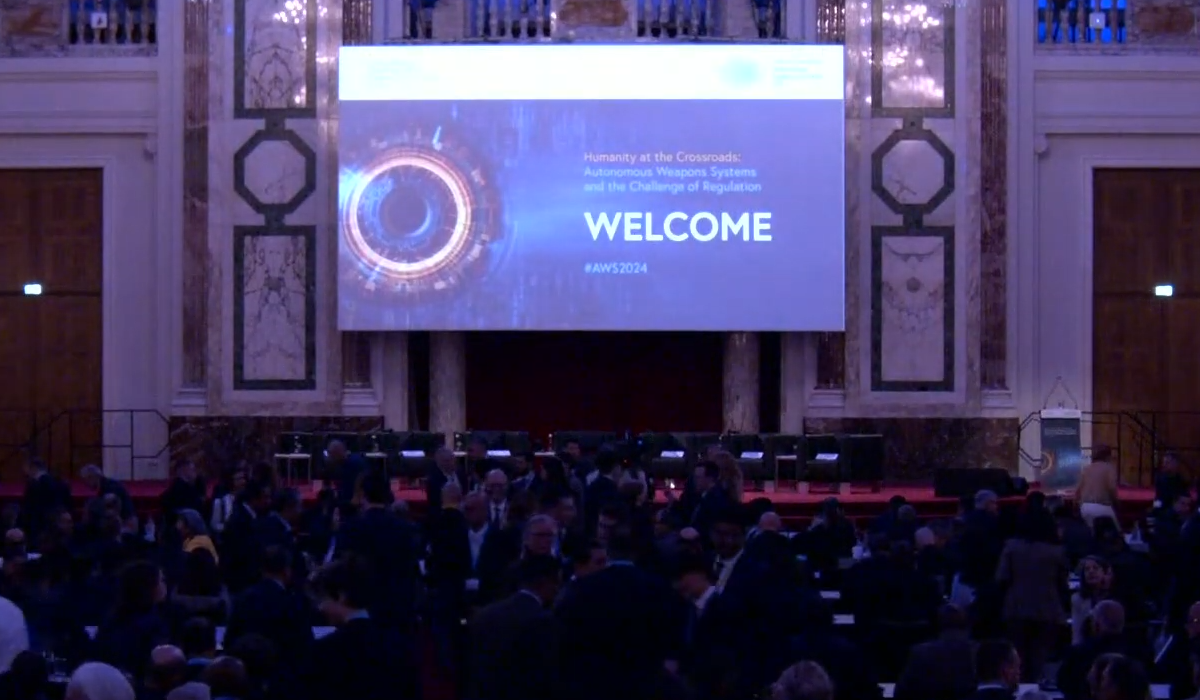Experts call for swift action against autonomous weapons in "Oppenheimer moment"

At the international conference "Humanity at the Crossroads" in Vienna, numerous high-ranking experts from politics, the military, science and civil society expressed their grave concerns about the risks of autonomous weapons systems. They urgently call for a legally binding instrument to regulate these technologies.
Such weapons would dramatically increase the risk of conflict escalation, are ethically highly problematic, and undermine human control over life and death decisions.
Austrian Foreign Minister Alexander Schallenberg likened the current situation to an "Oppenheimer moment" and called on the international community to act quickly.
Calling on the international community to act quickly, Schallenberg said, "Now is the time to agree on international rules and norms to ensure human control. For that, we need all of you within and outside of governments. We need you to raise your voices. We have a small window of opportunity, so let's use it."
He went on to emphasize the importance of maintaining human control over life and death decisions, adding, "We all know that any loss of human life in conflict is one too many, but at least let us make sure that the most profound and far-reaching decision, who lives and who dies, remains in the hands of humans and not of machines."
Mirjana Spoljaric, president of the International Committee of the Red Cross (ICRC), fears that autonomous weapons systems could lead to the "dehumanization of warfare. Without human control over the use of these weapons, compliance with international humanitarian law is no longer guaranteed, Spoljaric said.
She added that if autonomous weapons systems can select targets and apply force without human intervention, responsibility, and accountability for the use of force would also be lost.
Estonian tech entrepreneur Jaan Tallinn, co-founder of Skype, strongly warns of the dangers of autonomous weapons systems, especially those that can target humans. He sees them as an existential threat to humanity and calls for them to be banned.
Richard Moyes, director of the AI disarmament organization Article 36, emphasized the need for regulation. The ability to predict what will happen when a system is used is based on an understanding of both the technology and the context and how they interact, he explained. To lay this foundation, there needs to be a commitment to a sufficient understanding of the technology and the context.
The two-day conference was hosted by the Austrian government and attracted over 140 countries and almost 900 participants. The discussions are intended to provide impetus for the further diplomatic process with the aim of outlawing autonomous weapons internationally.
Many speakers emphasized that there is not much time left for this, as technologies are advancing rapidly. They said the "Pandora's box" has already been opened, and it is now important to steer developments in the right direction.
AI News Without the Hype – Curated by Humans
As a THE DECODER subscriber, you get ad-free reading, our weekly AI newsletter, the exclusive "AI Radar" Frontier Report 6× per year, access to comments, and our complete archive.
Subscribe nowAI news without the hype
Curated by humans.
- Over 20 percent launch discount.
- Read without distractions – no Google ads.
- Access to comments and community discussions.
- Weekly AI newsletter.
- 6 times a year: “AI Radar” – deep dives on key AI topics.
- Up to 25 % off on KI Pro online events.
- Access to our full ten-year archive.
- Get the latest AI news from The Decoder.